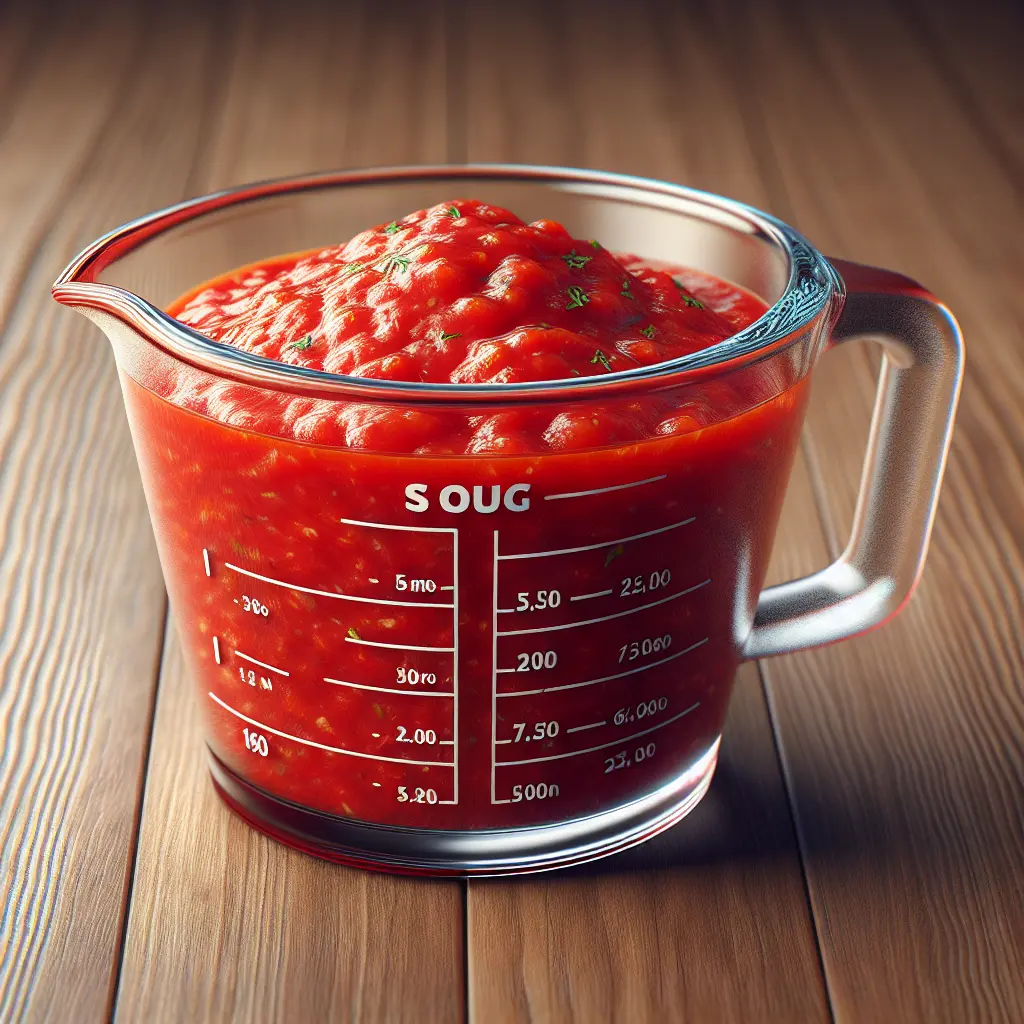Marinara Sauce: A Culinary Journey Through History and Flavor
Marinara sauce's origins can be traced back to the vibrant streets of Naples, Italy, where it emerged as a simple yet delectable accompaniment to fresh seafood. Over the centuries, marinara sauce has evolved, incorporating influences from various culinary traditions, becoming a beloved staple in kitchens across the globe.
Nutritional Value: A Balance of Flavor and Well-being
Marinara sauce offers a delightful balance of taste and nutritional value. A half-cup serving boasts a mere 66 calories, making it a guilt-free indulgence. With 1.8 grams of protein, 2.1 grams of fat, and 9.8 grams of carbohydrates, marinara sauce provides a satisfying blend of macronutrients. Additionally, it is a valuable source of fiber (2.4 grams) and contains 6.5 grams of sugar per serving.
Culinary Versatility: A Culinary Canvas for Creativity
Marinara sauce shines as a versatile culinary companion, complementing a wide range of dishes with its rich and tangy flavor profile. It is the quintessential topping for pizzas, adding a vibrant base to your favorite toppings. Marinara sauce also serves as an exceptional ingredient in pasta dishes, enveloping your favorite noodles in a flavorful embrace. Beyond traditional Italian fare, marinara sauce enhances soups, stews, and casseroles, adding a depth of flavor that elevates any meal.
Tips for Crafting the Perfect Marinara Sauce
Homemade marinara sauce is a culinary endeavor that brings immeasurable joy to the kitchen. Here are a few tips to ensure your marinara sauce reaches its full potential:
- Select the Right Tomatoes: Opt for ripe, flavorful tomatoes for an intense and vibrant sauce. San Marzano tomatoes are a classic choice, known for their sweetness and low acidity.
- Simmer, Don't Boil: Patience is key when simmering your marinara sauce. Allow it to gently bubble away, allowing the flavors to meld and deepen over time. Avoid boiling, as this can result in a harsh and acidic sauce.
- Season Wisely: Herbs and spices are essential in crafting a well-balanced marinara sauce. Fresh basil, oregano, and thyme add an aromatic touch, while garlic and onions provide a savory foundation. Don't be afraid to experiment with different combinations to create your own signature blend.
- Add a Touch of Sweetness: A hint of sweetness can help round out the acidity of the tomatoes. Sugar, honey, or even a touch of carrot can add a subtle sweetness that complements the savory flavors.
- Serve with Confidence: Marinara sauce pairs beautifully with various dishes, from pasta and pizza to grilled meats and vegetables. Serve it warm, allowing its flavors to shine through and elevate your culinary creations.
Conclusion: Marinara Sauce - A Culinary Treasure
Marinara sauce is a culinary treasure that has captured the hearts and taste buds of food lovers worldwide. Its versatility, nutritional value, and captivating flavor make it an indispensable ingredient in countless kitchens. Whether you are a seasoned chef or a home cook seeking culinary adventures, marinara sauce is an essential ingredient that will unlock a world of flavor and inspire endless culinary creations.
How many calories are in Marinara Sauce?
Each 0.5 cup of Marinara Sauce contains 66 calories.
Marinara Sauce Nutritional Information
| Nutrient | Amount per 0.5 cup (132g) |
|---|---|
| Calories | 66 Calories |
| Protein | 1.8g |
| Fat | 2.1g |
| Saturated Fat | 0.3g |
| Cholesterol | 0.0026mg |
| Carbohydrates | 9.8g |
| Dietary Fiber | 2.4g |
| Sugar | 6.5g |
| Sodium | 0.577mg |
| Potassium | 0.4224mg |
| Calcium | 0.034mg |
| Iron | 0.001mg |
